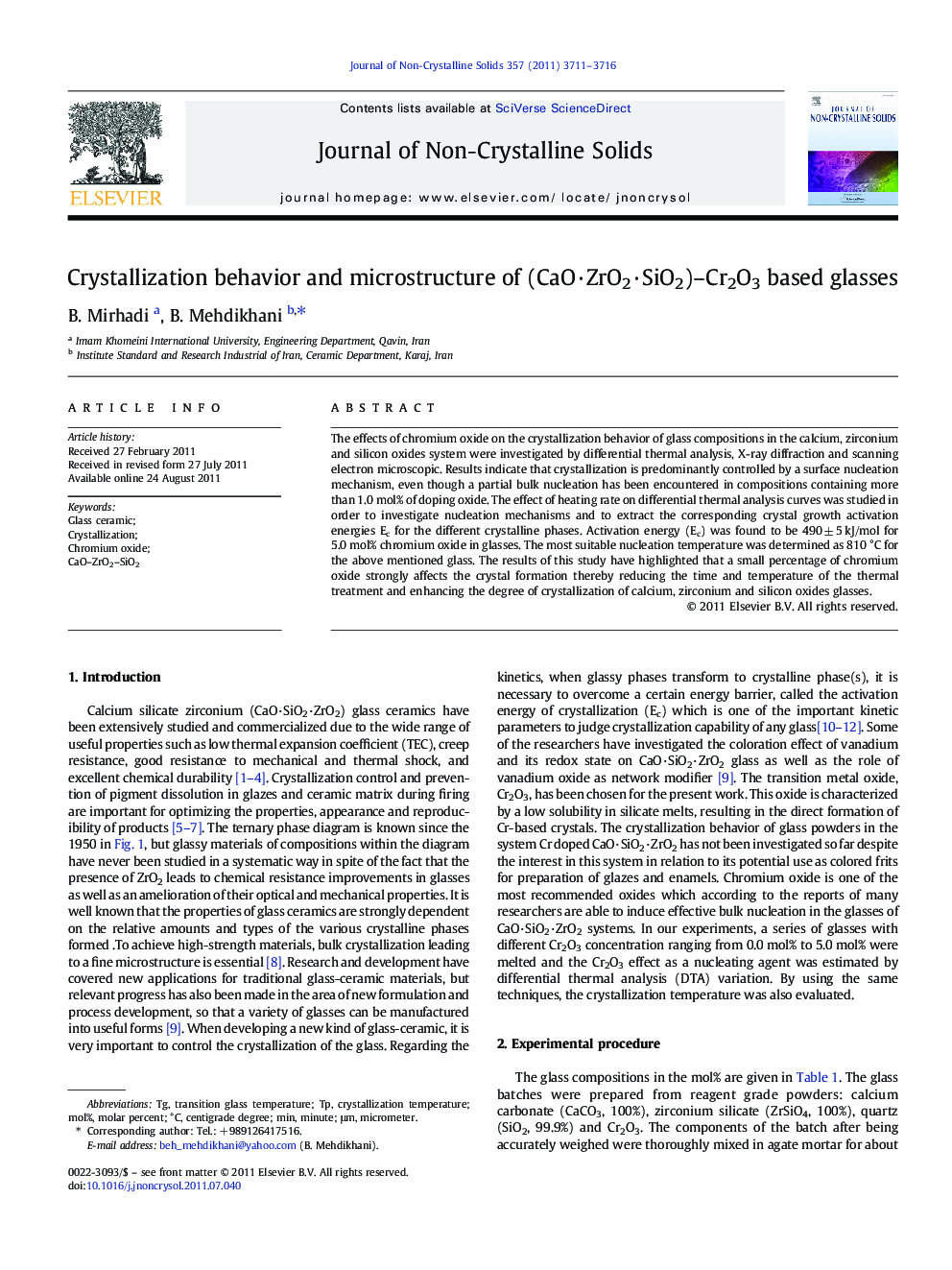| کد مقاله | کد نشریه | سال انتشار | مقاله انگلیسی | نسخه تمام متن |
|---|---|---|---|---|
| 1482577 | 1510481 | 2011 | 6 صفحه PDF | دانلود رایگان |

The effects of chromium oxide on the crystallization behavior of glass compositions in the calcium, zirconium and silicon oxides system were investigated by differential thermal analysis, X-ray diffraction and scanning electron microscopic. Results indicate that crystallization is predominantly controlled by a surface nucleation mechanism, even though a partial bulk nucleation has been encountered in compositions containing more than 1.0 mol% of doping oxide. The effect of heating rate on differential thermal analysis curves was studied in order to investigate nucleation mechanisms and to extract the corresponding crystal growth activation energies Ec for the different crystalline phases. Activation energy (Ec) was found to be 490 ± 5 kJ/mol for 5.0 mol% chromium oxide in glasses. The most suitable nucleation temperature was determined as 810 °C for the above mentioned glass. The results of this study have highlighted that a small percentage of chromium oxide strongly affects the crystal formation thereby reducing the time and temperature of the thermal treatment and enhancing the degree of crystallization of calcium, zirconium and silicon oxides glasses.
► Reducing the time and temperature of the thermal treatment.
► Enhancing the degree of crystallization of CaO·SiO2·ZrO2 glasses.
► The most suitable nucleation temperature was determined as 810 °C. activation energy was found 490 ± 5 kJ/mol for this glass.
Journal: Journal of Non-Crystalline Solids - Volume 357, Issues 22–23, 15 November 2011, Pages 3711–3716